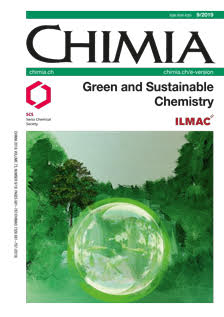Interface-rich Aqueous Systems for Sustainable Chemical Synthesis
DOI:
https://doi.org/10.2533/chimia.2019.714PMID:
31514771Keywords:
Cross-coupling, Interface-rich aqueous systems, Sustainability, Synthesis, WaterAbstract
Mimicking an enzyme's exquisite activity and selectivity is a long-standing goal for sustainable chemical method development in aqueous media. The use of interface-rich aqueous systems, such as single-chain polymers, micelles and vesicle membranes recently emerged as strategy to emulate the compartmentalization of natural systems. In aqueous solution, aggregates such as micelles or microemulsion droplets are formed, providing reaction environments different from bulk solutions that frequently improve selectivity and accelerate reaction rates for a wide array of chemical transformations. We present here selected examples of interface-rich aqueous systems and discuss the advantages they offer for chemical synthesis. In particular metal-catalyzed cross-coupling reactions are highlighted and future challenges to perform reactions in interface-rich aqueous media are discussed.Downloads
Published
2019-09-18
Issue
Section
Scientific Articles
License
Copyright (c) 2019 Swiss Chemical Society

This work is licensed under a Creative Commons Attribution-NonCommercial 4.0 International License.
How to Cite
[1]
Chimia 2019, 73, 714, DOI: 10.2533/chimia.2019.714.







